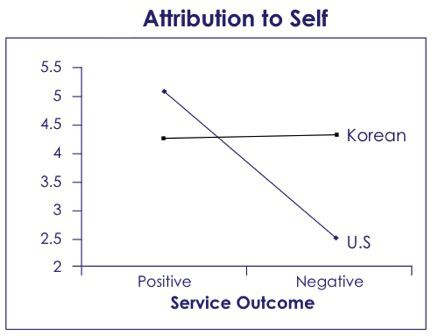It’s a curious yet common practice at the bottom of Chinese websites. A selection of curated hyperlinks that go by many names – “friendly links”, “cooperative partners”, “enterprise promotion” – but have one purpose: to manipulate search engines.
While ostensibly there to help visitors navigate the web, the evolution of the Chinese Internet has turned this otherwise benign footer element into a commodity bought and sold by savvy web entrepreneurs and shifty SEO consultants for their own gain and to the detriment of the Chinese Internet as a whole.
While it’s easy to blame shortcomings in the algorithms, a more well-rounded explanation for their persistence is a fundamental attribution error by search engines toward an individual expression that doesn’t deliver the same utility when applied to China.
Search engines are prone to see “friendly links” as paid links, fraudulent votes in an otherwise natural election of how people link to each other on the web.
Scores of PhDs and very bright engineers work tirelessly to recognize and rid their indexes of this scourge of paid links – otherwise, searchers wouldn’t know who to trust, who to listen to, and have a sickening feeling that all the blue links being waved in their face are being manipulated.
The quality and impartiality of search results are of utmost importance lest searchers switch engines. “The goal is always the same: improve the user experience,” says Udi Manber, VP of engineering at Google in charge of Search Quality. “This is not the main goal, it is the only goal.”
Search engine algorithms, with slight differences, are based on the notion that the quality and quantity of links, in combination with lesser signals, determine if and when a site should rank for a given search query. Although the easiest way to get links is simply to buy them, this is universally against search engine guidelines and those caught buying or selling links risk a penalty.
Search engines operating in China must overcome yet another obstacle: the impact of collectivist culture. Baidu and Google both got their start in America, an individualistic culture, indexing and ranking web pages written by and with links to and from Americans – Baidu in New Jersey at IDD Information Services and Google for a Ph.D. thesis at Stanford.
The essence behind their algorithms is that the importance of a web page can be determined by counting its number of citations, or backlinks. In other words, the more people talk about a web page, the more useful it must be for whatever anchor text they used in their link.
The Chinese, however, express opinions and transmit word-of-mouth differently than Americans, whose link graph and algorithms Baidu and Google are both based on. Despite Baidu’s dominant market share and Google’s valiant effort, neither search engine in China has overcome the deficiencies in their algorithm to make sense of the link graph in a collectivist culture.
Motivational factors and social benefits play an important role in self-expression online and the likelihood to link. In individualistic cultures like the US, writing about something online is often a means of gaining attention and showing connoisseurship.
Americans talk about something to reinforce their self-concept. On the contrary, members of collectivist cultures like China are under the high pressure of the group and are less likely to write about something online to gain attention and praise, even about something they generally like and are knowledgeable about.
For stuff they don’t like, there’s risk of shame in bringing it up and little social benefit for breaking the social hierarchy just to express your subjectivity. Compare the case of Mr. Chow of New York v. Ste. Jour Azur S.A. in America to that of this food blogger in Taiwan.
In the former, the court said “Mr. Chow could prove that the reviewer’s personal tastes are bizarre and his opinions unreasonable, but that does not destroy their entitlement to constitutional protection”, while the latter ended in detention, fines, and a stern warning to other opinionated bloggers.
Furthermore, members of collectivist cultures are more likely to attribute positive and negative outcomes equally to themselves rather than a service provider.
There’s subsequently less impulse to post something online about an experience since there are no strong feelings toward the service provider either way (as they’re in the same collective).
The graph below is from a Kansas State University study showing how Koreans, who are also collectivist, and Americans, individualists, reacted to getting a great deal vs. being overcharged for airline tickets.

Koreans are more likely to feel “meh” toward an experience so aren’t likely to recount it publicly online.
Citations then are not the best way for search engines to look at the relative importance of web pages in collectivist cultures. The differences in the American and Chinese link graphs can best be witnessed through the linking patterns surrounding the topic of wine.
Knowledge of a bottle of wine can tell others that you are a person of sophistication and good taste, or that you are pretentious and waste your energy discussing a drink – that is, wine often elicits strong responses.
The top websites in the US and China for wine-related keywords, winelibrary.com and yesmywine.com respectively, demonstrate the effects of collectivist culture on the Chinese link graph and the consequences for the individualistic-biased search engines.
Links to winelibrary.com come from social media, blogs, and news websites, while yesmywine.com gets its links rather furtively from directories and “friendly links” in footers.
While both websites have enough high-authority links to boost them near the top for wine-related search queries in their respective countries, getting there took them down completely different paths.
Search engine algorithms work best for people like Gary Vaynerchuk, the man behind winelibrary.com, who exudes a charismatic outgoing personality and finds himself popular with lots of people linking to his site.
American society highly values those who are loud, fast, and active in most settings, and search engines – invented in America – reflect that. Chinese SEOs and website owners find they must re-arrange their world to put themselves in front of you.
Attaining top rankings can be seen as a race to get the most people riled up about your site from other sites, so to overcome the problem of Chinese netizens not expressing themselves online and linking like those in the West, link building in China through directories, paid links, and other low key methods of obtainment will persist.
Website owners with the deepest pockets for paid links consequently have the greatest odds of top rankings. With the current bias of the algorithms and rampant manipulation, it’s impossible to know if the search results returned to you are really the most relevant pages.
Burberry launched its first luxury social retail store, empowered by WeChat

This is a guest post by Doug Pierce, the Co-Founder and Head of Research at Digital Due Diligence, a boutique Internet equity analysis firm.